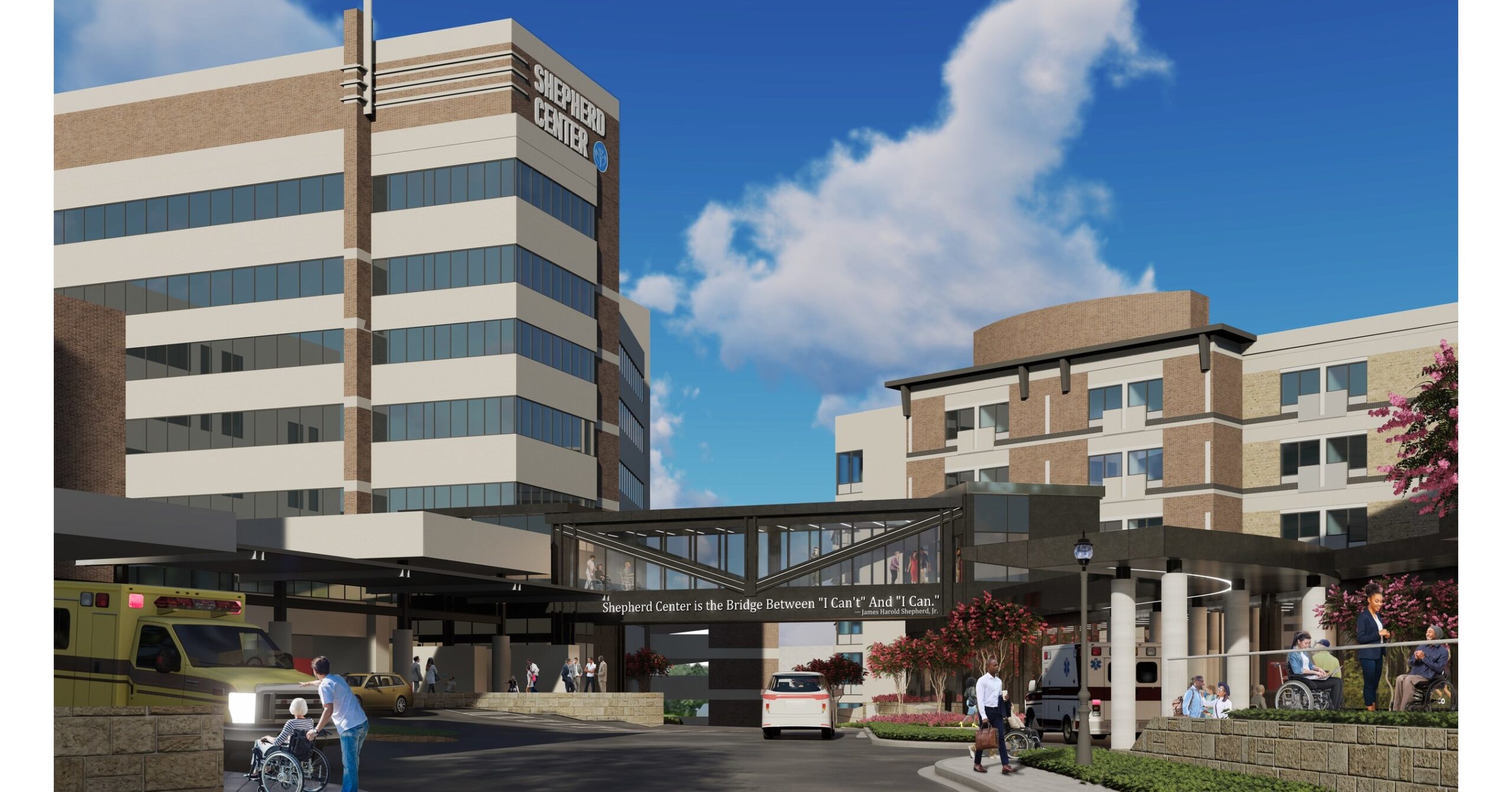If you’ve ever wondered how cutting-edge technology and personalized care converge to transform lives after a brain injury, consider the journey of a young athlete who regained mobility and cognitive function post-accident.
The impact of selecting the right treatment center cannot be understated. As you navigate the vast landscape of facilities available, understanding the key criteria for evaluating treatment centers specializing in brain injury becomes essential.
The success stories are compelling, but the path to finding the ideal center for your unique needs is intricate and pivotal.
Shepherd Center in Atlanta, Georgia
In Atlanta, Georgia, the Shepherd Center stands as a beacon of excellence in brain injury treatment and rehabilitation. When you arrive at the Shepherd Center, you’re greeted by a team of dedicated professionals who are committed to helping you on your journey to recovery.
The center, founded in 1975, focuses on spinal cord injury, brain injury, and other neurological conditions. You’ll find a range of specialized services tailored to meet your individual needs, whether through inpatient or outpatient rehabilitation programs.
At Shepherd Center, you’ll benefit from highly ranked U.S. rehabilitation hospital services that include brain injury day programs, neurorehabilitation technology, cognitive rehabilitation, physical and occupational therapy, and speech-language therapy.
The comprehensive care provided by the interdisciplinary healthcare team, along with state-of-the-art facilities and technologies, ensures that you receive personalized, evidence-based treatment.
Additionally, the center offers psychological counseling, vocational training, and community reintegration support to help you not only recover physically but also reintegrate successfully into your community.
Craig Hospital in Englewood, Colorado
Continuing the focus on exceptional brain injury treatment centers, Craig Hospital in Englewood, Colorado, offers specialized care for spinal cord and traumatic brain injuries with an emphasis on personalized, evidence-based treatment. Established in 1956, Craig Hospital is renowned for its comprehensive approach to rehabilitation.
With a focus on individualized care, their interdisciplinary healthcare team ensures that each patient receives tailored treatment plans. The facility provides acute medical and surgical care, vocational training, and community reintegration support, aiming to enhance the quality of life for those recovering from brain injuries.
Craig Hospital is equipped with state-of-the-art facilities and technologies to facilitate the rehabilitation process effectively. Additionally, the hospital is actively involved in research initiatives, collaborating with medical centers and universities to drive innovation in treatment modalities and contribute to the development of new rehabilitation techniques.
If you or a loved one require specialized care for spinal cord or traumatic brain injuries, Craig Hospital in Englewood, Colorado, could be the ideal place for your rehabilitation journey.
Rusk Rehabilitation in New York City
With a multidisciplinary specialist team and a focus on comprehensive, evidence-based care, Rusk Rehabilitation in New York City provides specialized brain injury rehabilitation services.
Specialized Services at Rusk Rehabilitation
- Comprehensive Brain Injury Rehabilitation Programs
- Individualized Treatment Plans
Unique Features of Rusk Rehabilitation Services
- State-of-the-art Rehabilitation Facilities
- Advanced Neurorehabilitation Technologies
Rusk Rehabilitation in New York City stands out for its commitment to delivering high-quality care tailored to each patient’s specific needs. The center’s specialized services encompass a wide range of comprehensive brain injury rehabilitation programs designed to promote recovery and maximize outcomes. With a strong emphasis on individualized treatment plans, Rusk Rehabilitation ensures that each patient receives personalized care to address their unique challenges and goals.
Additionally, the facility boasts state-of-the-art rehabilitation facilities equipped with advanced neurorehabilitation technologies to support patients on their journey to recovery.
Spaulding Rehabilitation Hospital in Boston, Massachusetts
Having explored the specialized brain injury rehabilitation services at Rusk Rehabilitation in New York City, let’s now shift our focus to Spaulding Rehabilitation Hospital in Boston, Massachusetts.
Spaulding Rehabilitation Hospital is a renowned facility that excels in providing comprehensive care for individuals with brain injuries. With a strong emphasis on community integration, Spaulding offers programs designed to aid in physical and cognitive recovery, including assistance with community outings and engaging recreational activities.
The hospital is dedicated to ensuring that patients not only receive top-notch medical care but also have access to the necessary support services for a successful rehabilitation journey.
By connecting patients with resources and promoting active participation in their recovery process, Spaulding Rehabilitation Hospital stands out as a beacon of hope for those seeking specialized care for brain injuries in the Boston area.
Moss Rehab in Philadelphia, Pennsylvania
Located in Philadelphia, Pennsylvania, Moss Rehab is recognized for its comprehensive rehabilitation programs tailored to individual patient needs.
Within its specialized services, Moss Rehab stands out for its:
Inpatient and Outpatient Programs
- Tailored rehabilitation plans for diverse patient requirements
- Continuum of care from initial injury stabilization to recovery support
Focus on Cognitive and Physical Rehabilitation
- Cutting-edge therapies to enhance cognitive functions
- Multidisciplinary approach for holistic physical recovery
Moss Rehab, as part of the Einstein Healthcare Network, offers a range of support services and counseling to aid patients in their recovery journey.
By providing personalized care and utilizing innovative techniques, Moss Rehab strives to optimize patient outcomes and promote community reintegration.
Evaluating Treatment Centers for TBI
When selecting a treatment center for traumatic brain injury (TBI), prioritize institutions with a strong track record in specialized care and comprehensive rehabilitation services.
Look for centers like Shepherd Center in Atlanta, known for its focus on spinal cord injury and brain injury, offering inpatient and outpatient rehabilitation programs.
Craig Hospital in Englewood is another excellent choice, specializing in personalized, evidence-based care for spinal cord and traumatic brain injuries, including vocational training and community reintegration support.
Evaluate the range of services offered, such as cognitive rehabilitation, physical and occupational therapy, and speech-language therapy.
Consider the expertise of the interdisciplinary healthcare team, state-of-the-art facilities, and support services like psychological counseling and vocational training. Research the center’s involvement in innovative treatment modalities and collaboration with medical centers and universities.
Prioritize a center that not only provides top-notch medical care but also focuses on holistic patient support and community integration for a well-rounded approach to TBI rehabilitation.


